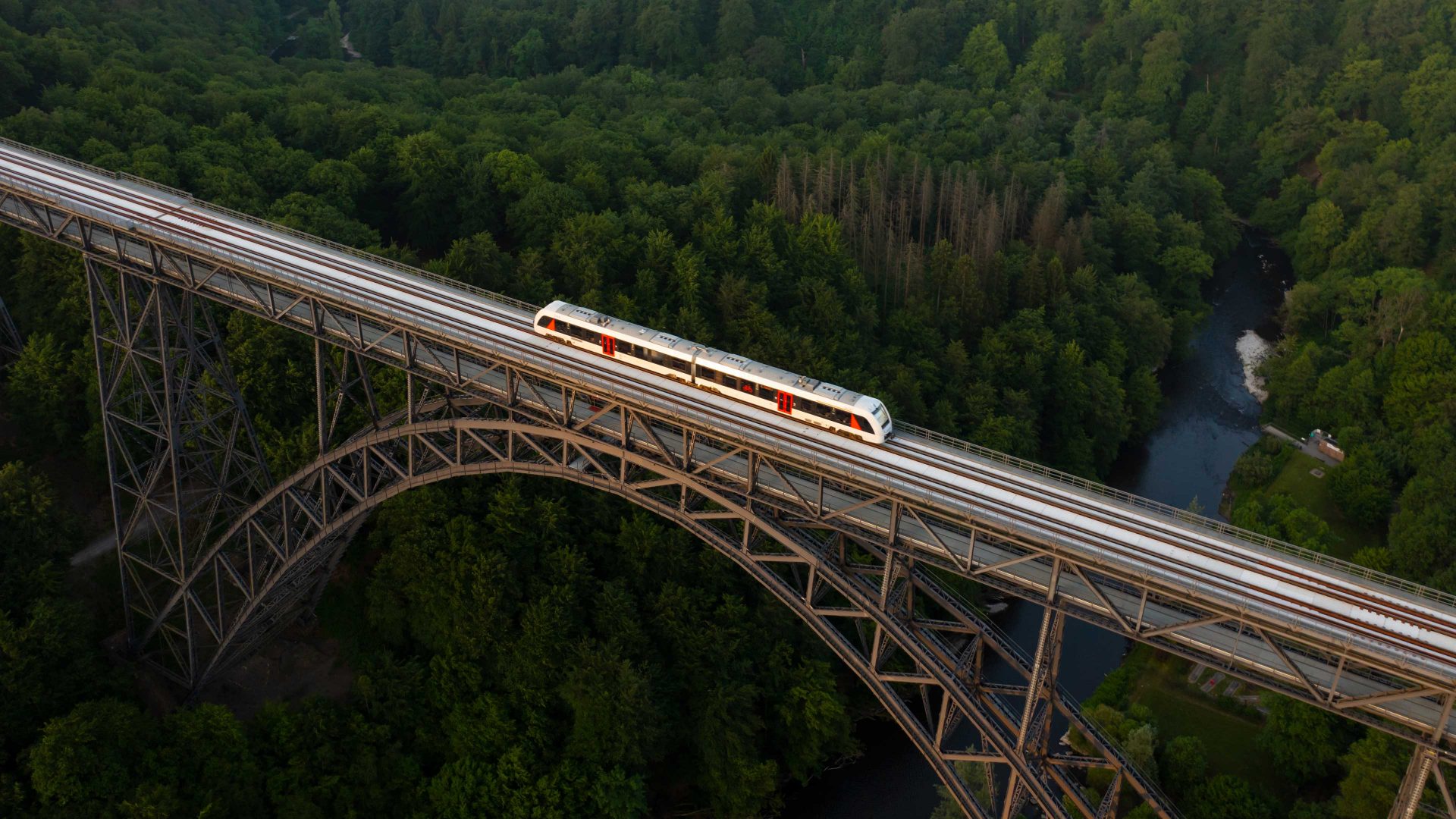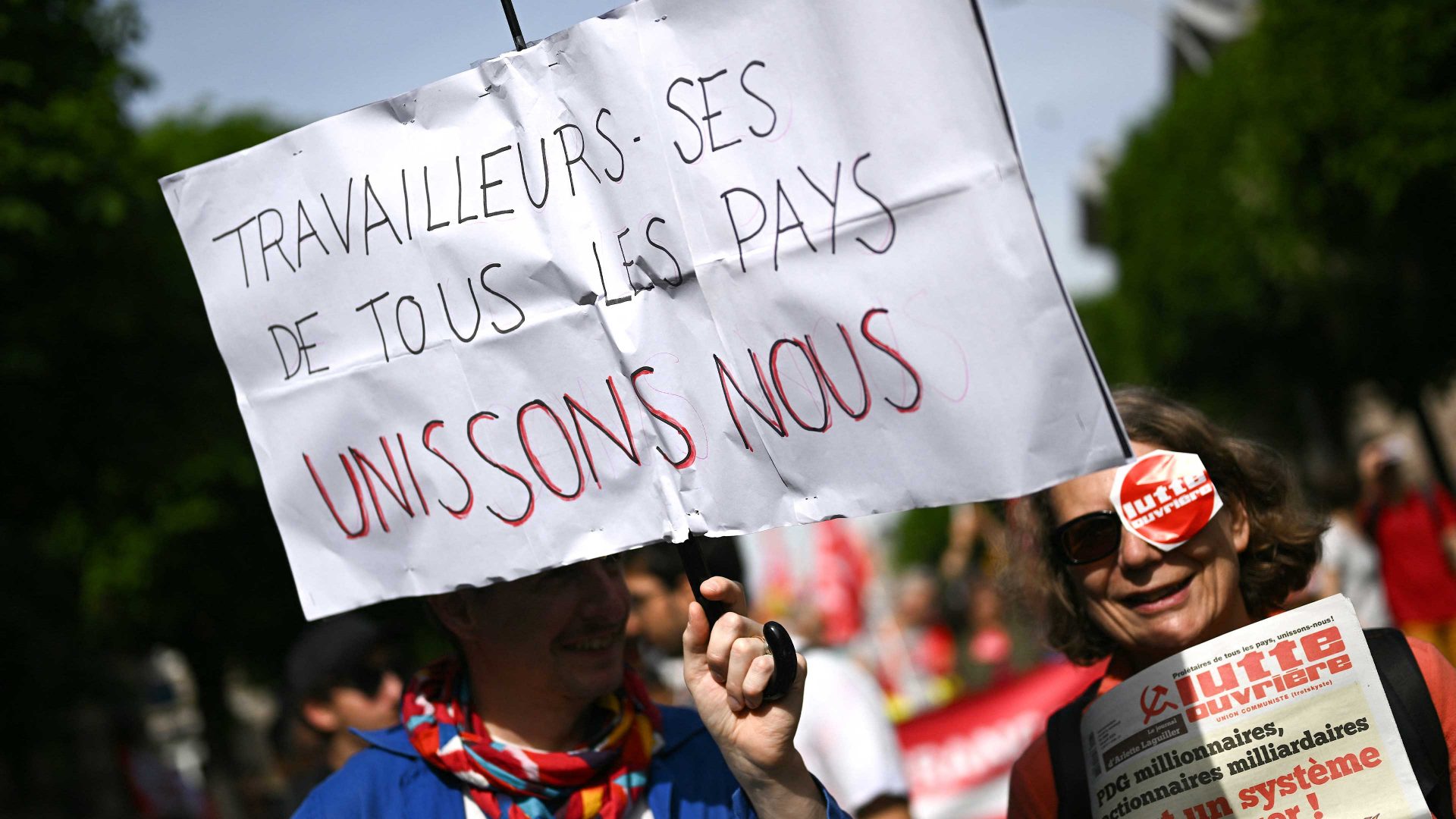Tired of delays and of all those onerous, if necessary, security scans, I decided recently to skip Heathrow and Frankfurt airports and make my trip to Mannheim in western Germany by train. It was a pleasure from start to finish: a chance to read, and watch the passing towns, farms, and forests, instead of jostling with airport crowds and forking out a small fortune for a “meal deal” in the departure zone.
I went from St Pancras station to Paris, and after a change from Gare du Nord to Gare de l’Est, onwards to Mannheim: that leg of the journey took a little over three hours on the high-speed TGV. As someone who frequently travels by train between London and Manchester, I do realise that trains are subject to delay – but I still cannot remember the last time I took a flight in Europe that wasn’t late.
Air travel has distorted our sense of distance like no other mode of transport because, aside from the animated map on the video screen in the cabin, it is only at the beginning and end of the journey that you get any sense of where you really are.
There was a time when trains were the shocking, rapid, new. The expansion of the railways in the 19th century led to a boom in commerce and culture. Everything and everyone from opera singers to raw materials for the new industries crossed the continent in previously unimagined time. For the Europeans of that age, the train was a speeding-up, not a slowing-down, and one of the most powerful symbols of that age’s unshakeable belief in progress.
Trains may once again be the future. Sleeper routes, discontinued as flights fell dramatically in price, are making a comeback: European Sleeper, founded in 2021, offers a service from Brussels to Prague. A sleeper was launched in 2022 between Hamburg and Stockholm – and it was Sweden that gave us the word flygskam, meaning “flight shame”, the idea you should be ashamed of the pollution generated by the flights you take. It’s a fitting destination for this pioneering line.
I hope this trend continues and grows, although now that my British passport no longer offers the unlimited access it did before Brexit, my preference for train travel across the EU’s open frontiers can confuse immigration officials. Leaving Berlin on a flight to London last year, I had to find for the border guard the passport stamp from French immigration at St Pancras. I had to explain how I had travelled so far into Germany without an entry stamp.
The first time I travelled from Paris to Berlin by train was in 2019, on my way to Russia. Having lived and reported from there for long periods from 1991 to 2009, I little imagined that would be my last trip to Moscow for years, if not for ever.
In the Gare de l’Est, then, as on my recent journey, I read plaques remembering the railway workers killed in the wars of the last century, and the tens of thousands of French Jews sent east by rail to their deaths during the Holocaust. On my last trip, a photo exhibition of the war in Ukraine, set out on the station approach, was a reminder that war in Europe is not only a memory.
This month, as Europe marks in its different ways the anniversary of the end of the Second World War, it is hard not to remember too that in the 20th century, the railways allowed warlike regimes to move vast armies, and commit vast crimes, also without precedent in human history. Let us hope that, in this century, the railways of Europe will help us to share our cultures, not kill.
James Rodgers is a former BBC Moscow correspondent



